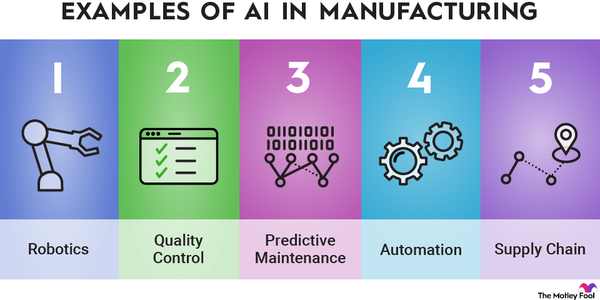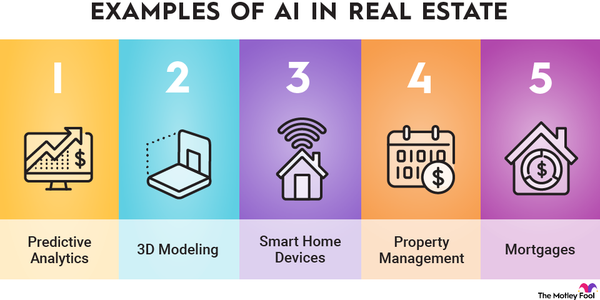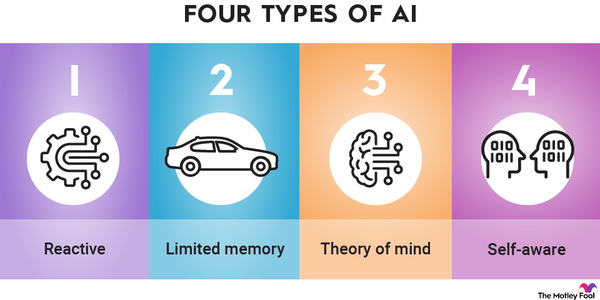Quantum stocks represent the next major breakthrough in modern technology. These systems have little in common with today's digital computers, so experts in the field could become market-beating giants in the long run.
Quantum computing technology harnesses the power of quantum mechanics, utilizing effects like superposition -- the phenomenon that occurs at the subatomic scale in which objects have no clearly defined state. It's exciting because this field of research promises to accelerate computing speed by an order of magnitude greater than what's possible today.

However, while quantum computing has made great strides in just a few years, the technology is still mostly in the research and development stage in 2025. Quantum computers are continually improving and becoming more affordable to develop, and the advent of cloud computing is making quantum technology even more accessible for researchers and software developers.
For example, in December 2024, researchers at the Google Quantum AI group demonstrated a new quantum computing chip called Willow. This chip had the strongest error correction seen to that point and performed extremely well in industry-standard benchmark tests such as the random circuit sampling (RCS) test.
The achievement inspired a quick boom in quantum computing stocks. However, the researchers also made it clear that Willow's performance was just a small step on a long road.
Computing power needs are ballooning as the digital economy and artificial intelligence (AI) expand. Spending on global cloud computing alone is predicted to rise to $1 trillion annually within the next decade. Quantum computing could emerge as a key technology by the end of the 2020s as its viability for cloud and AI tasks continues to develop rapidly.
However, that's a highly optimistic timeline. Many experts would rather point to the mid-2040s as the start date for truly game-changing quantum computers.
Best stocks
Best quantum computing stocks in 2025
There are only a few quantum computing pure-play companies. Some very tiny, high-risk businesses, like D-Wave Quantum (QBTS 5.1%) and Rigetti Computing (RGTI 3.89%), went public early in the COVID-19 pandemic. Their stocks soared in 2024 as the basic quantum computing technology took an important step forward.
A number of companies creating software for quantum computers also exist, such as security software start-up Arqit Quantum (ARQQ 7.69%) and integrated hardware and software company Quantum Computing (QUBT 7.69%). A quantum computing exchange-traded fund (ETF) is available as well to get more general exposure to this nascent industry.
Nevertheless, many larger tech businesses and semiconductor designers are increasing their activity in the quantum realm. Here are some top companies with a hand in the actual development of quantum computers and related technologies:
| Name and ticker | Market cap | Dividend yield | Industry |
|---|---|---|---|
| IonQ (NYSE:IONQ) | $12 billion | 0.00% | Technology Hardware, Storage and Peripherals |
| Rigetti Computing (NASDAQ:RGTI) | $5 billion | 0.00% | Semiconductors and Semiconductor Equipment |
| D-Wave Quantum (NYSE:QBTS) | $5 billion | 0.00% | Software |
| Nvidia (NASDAQ:NVDA) | $4.3 trillion | 0.02% | Semiconductors and Semiconductor Equipment |
| Microsoft (NASDAQ:MSFT) | $3.8 trillion | 0.65% | Software |
| Honeywell International (NASDAQ:HON) | $141 billion | 2.03% | Industrial Conglomerates |
| International Business Machines (NYSE:IBM) | $226 billion | 2.77% | IT Services |
| Intel (NASDAQ:INTC) | $109 billion | 0.00% | Semiconductors and Semiconductor Equipment |
1. IonQ
IonQ went public via a merger with special purpose acquisition company (SPAC) dMY Technology Group III in 2021. IonQ is a start-up-stage quantum computing company and the first quantum computing pure-play (i.e., all it does is quantum computing development) to become publicly traded.
IonQ develops quantum computing hardware and is the first to have its computing systems available via all the major public cloud services. It plans to build a network of quantum computers accessible via the cloud and is targeting rapid growth in 2025 as researchers begin using its hardware at a greater scale.
IonQ's orientation toward cloud computing is illustrated by its partnerships with Microsoft, Amazon (AMZN 3.12%) Web Services (AWS), and Google Cloud. Japanese telecommunications company and tech investor SoftBank Group (SFTBF 5.05%) has also invested in IonQ.
SoftBank is partnering with IonQ to bring quantum computing power to the many other tech companies in its portfolio. IonQ's most powerful computer, Aria, has been available since May 2023 via an AWS service.
IonQ generates little in the way of revenue so far and is not yet profitable. It will need to continue spending heavily to develop its products and business for at least a few more years.
Investing in this start-up is a speculative play. If IonQ's research efforts are successful, the stock could be a profitable way to invest in quantum computing, but investors should act with prudence. This is still a start-up business, and its valuation is often sky-high.
2. Microsoft
The software titan researches and develops all sorts of technology, and quantum computing technology is no exception. Quantum computers need special refrigeration, hardware designed at microscopic levels, and special software, all of which Microsoft is developing in its labs. Microsoft also offers researchers access to quantum computing services via its massive cloud platform, Azure.
Quantum computing tech probably won't be a significant driver of Microsoft's financial performance anytime soon. However, the company is helping to develop the next generation of computing technology. Microsoft stock has been a winning investment for decades, and its importance in the software technology field will persist for a very long time.
3. Alphabet
Alphabet subsidiary Google, the third-largest public cloud computing platform, has developed its own quantum computing chips, branded Sycamore. The tech behemoth is using quantum computing to advance its AI software systems. In March 2022, it spun off its quantum computing software unit into an independent start-up called SandboxAQ.
Google's interest in better, faster, and smarter methods of computing stems from its leading role in internet search. The company is responsible for organizing massive amounts of digital data, and it can profit significantly by helping all types of organizations leverage the power of that information.
Quantum computing coupled with AI may provide a way for Google to improve the efficiency of large computing systems. This technology is central to the company's efforts to innovate.
4. Nvidia
Nvidia has emerged as the global leader in advanced semiconductor designs, powering next-gen tech with its graphics processing units (GPUs) that accelerate computing power. Nvidia is helping to develop quantum computers using its GPUs, retaining its leadership role in developing sophisticated circuitry design. The company is also a leader in AI and machine learning.
Semiconductor
Nvidia is leveraging its software developed for GPUs to support the development of quantum computing. It has released cuQuantum, a software development kit designed to help software developers build workflows on quantum computing. The idea is to control next-generation quantum systems with a digital toolkit, simplifying the move from one computing era to another.
On the hardware side, Nvidia announced DGX Quantum in early 2023. The system pairs Nvidia's most advanced GPUs with quantum hardware developed by start-up Quantum Machines. It is made for researchers advancing quantum computing technology. Nvidia's quantum work has wide-ranging uses, from breakthroughs in jet engine efficiency to rapid drug and healthcare development.
5. Intel
Intel lost its lead in the semiconductor industry. Third-party foundry Taiwan Semiconductor Manufacturing (TSM 2.58%) passed Intel up a few years ago, and numerous companies (including Nvidia) are valued far higher owing to their greater exposure to growth markets like GPUs for AI.
But Intel is mounting a comeback. One of its initiatives includes a quantum computing chip called Tunnel Falls. The silicon-based chip uses Intel's most advanced manufacturing processes and is now available to the research community. Intel says it has partnered with numerous government and university research departments to test Tunnel Falls.
Quantum computing is not central to Intel's plan to regain its dominance in the semiconductor industry. Still, if research yields positive results, it could become an important segment for the integrated chip design and manufacturing giant later on.
6. Honeywell
Honeywell is best known as an industrial manufacturer that produces everything from aerospace equipment to advanced construction materials to medical devices. However, Honeywell is also a technology firm whose diverse work includes quantum computing.
Honeywell built its own quantum computer unit, which it spun off as a separate business and merged with start-up Cambridge Quantum Computing in January 2024. The new stand-alone entity is called Quantinuum (which is now on its second-gen quantum computer).
Honeywell remains a majority shareholder with a 54% ownership stake. It also supplies Quantinuum with hardware and software as it develops its quantum computing technology. Quantinuum has been particularly focused on developing new cybersecurity services and chemistry.
7. IBM
IBM is a legacy technology firm that is refocusing on cloud computing opportunities. It also has its own quantum computing chips and systems available for commercial use via the company's IBM Quantum business unit. More than 210 research organizations and companies, ranging from financial services businesses to automakers to energy producers, use IBM's quantum computing services.
In 2021, the company struck a deal with government contractor Raytheon Technologies (RTX -0.06%) to develop AI and quantum computing for the aerospace, defense, and intelligence industries. The U.S. government will be a top customer of the research collaboration. IBM combines an innovative product portfolio with modest stock gains compared to other quantum computing and AI experts.
Related investing topics
Should I invest?
Pros and cons of investing in quantum computing stocks
Quantum computing is still in the early stages of development. However, plenty of research dollars are being funneled into this advanced tech.
Quantum computing could eventually augment classic computers and dramatically accelerate technological developments in industries such as healthcare, finance, and materials manufacturing. Although quantum computing pure-play stocks are scarce, investing in technology giants with quantum computing exposure could yield impressive returns in the decades ahead.
At the same time, it's tricky to pick long-term winners in this emerging field. It's a risky and volatile industry, unless you're investing in it via proven tech titans that will do just fine even if their quantum computing bets don't pay off.
How to invest
How to invest in quantum computing stocks
1. Open your brokerage app: Log in to your brokerage account where you handle your investments.
2. Search for the stock: Enter the ticker or company name into the search bar to bring up the stock's trading page.
3. Decide how many shares to buy: Consider your investment goals and how much of your portfolio you want to allocate to this stock.
4. Select order type: Choose between a market order to buy at the current price or a limit order to specify the maximum price you're willing to pay.
5. Submit your order: Confirm the details and submit your buy order.
6. Review your purchase: Check your portfolio to ensure your order was filled as expected and adjust your investment strategy accordingly.
FAQ
Quantum computing FAQ
Are quantum stocks a good buy?
At this point, there is no established leader in quantum computing. Dozens of companies, including several tech giants, are researching its potential and experimenting with real-world uses. Developing quantum hardware that accurately performs computations and meets reasonable return on investment thresholds is still ongoing.
So there are no clear long-term winners to invest in at this point, apart from the established tech giants who can treat quantum computing as a promising side gig. Smaller quantum computing experts such as D-Wave, Rigetti, and IonQ might deliver great long-term returns -- but they also face significant risks without a financial safety net.
All things considered, quantum computing is best explored very carefully. Established winners and multistock ETFs can limit your risks, and direct bets on the smaller experts in this field should be fairly small. Those are high-risk, high-reward long-term bets.
Which company is leading in quantum computing?
Well-established tech giants like Alphabet and IBM appear to be making the most headway in quantum computing. This will likely remain the case, given the billions of dollars needed to fund research into this emerging technology.
Can I invest in quantum computing?
Yes. Only a small handful of quantum computing pure-plays exist at this point, and they all lose money. However, investors who want a more balanced bet on the future of quantum computing can invest in the shares of tech giants with an interest in the space.
Are quantum computing stocks risky?
Quantum systems are slowly becoming more usable for solving real-world computing problems, but it will still take many years to commercialize this industry in a meaningful way. Tech giants like Microsoft, Alphabet, and Nvidia offer onramps to this exciting field, while smaller specialists such as D-Wave and Ionq are more direct bets on this technology. The big names are safer, and the small ones come with greater financial risks.

























